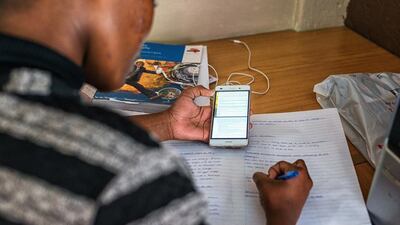Abu Dhabi-based satellite provider Yahsat plans to offer greater assistance to the global humanitarian aid community in conjunction with the UAE’s Ministry of Foreign Affairs and International Cooperation.
Yahsat, which is a unit of Abu Dhabi investment company Mubadala Development, held a one-day forum in Geneva last month, attended by senior representatives from various international humanitarian bodies together with senior UN representatives from the GCC, Jordan, Pakistan and Spain, highlighting potential collaboration activities between the satellite industry and the international humanitarian aid community.
The Enabling through Connectivity forum, also held in conjunction with the UAE’s permanent mission to the UN, follows a series of discussions held between Yahsat and the UN over the past three years.
“Following the upheavals in the Arab world and beyond in 2014, we felt it was more critical than ever to really understand the needs of the sector in order to serve it better,” said Najat Abdulrahman, Yahsat’s executive director for global strategic business development.
“Increasingly people who have been displaced by crises take their phones with them and want to remain connected to their loved ones. Humanitarian aid agency staff, who are often out in the field for months on end, also want to remain connected.”
Such discussions coincided with an increasing openness within the UN, the international aid community and the UAE's Ministry of Foreign Affairs and International Cooperation about increasingly involving the private sector in humanitarian relief efforts worldwide, she told The National.
“It’s started a dialogue between us and the UN and the humanitarian aid community, meaning we can better develop solutions and services that helps them and the people they’re helping,” she said.
Through its partners, Yahsat is already providing support to humanitarian aid efforts in crisis zones including South Sudan, Turkey, Yemen, Syria and Iraq, she said.
Yahsat was one of seven major satellite operators to sign a Crisis Connectivity Charter with the UN Office for the Coordination of Humanitarian Affairs in October 2015, intended to accelerate the ability of emergency response teams to access satellite-based communications when local networks are affected, destroyed or overloaded following a disaster.
The charter’s principles also include increased coordination to prioritise access to bandwidth for humanitarian purposes during disaster operations, pre-positioned satellite equipment and transmission capacity at times of disaster in 20 high-risk countries in Europe, the Middle East, Africa and Asia, as well as training and capacity building for the humanitarian community across all five continents.
jeverington@thenational.ae
Follow The National's Business section on Twitter

